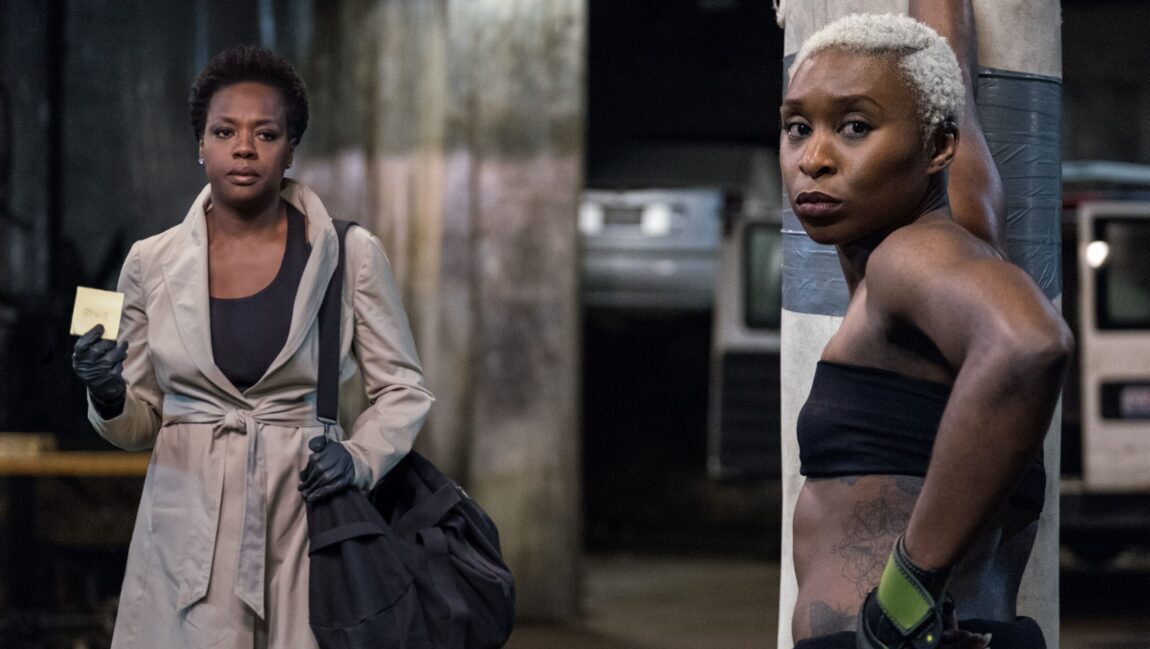My wife and two children have been at home since March 14th. I worked until the 17th, as my company waffled back and forth over reducing hours of operation before finally giving up and shutting its doors entirely, furloughing all employees until further notice. We are living in unprecedented times, with no end in sight beyond a vague trust that someway, somehow, things must return to normal. Of course, this has affected our viewing habits — how could it not? As A.V. Club film editor A.A. Dowd has written, “Every movie is now a horror movie.” In general, he’s talking about any movie, how seeing people touch each other or gather in large groups is suddenly shocking. Specifically, he’s talking about the new straight-to-VOD Sea Fever, an Alien and The Thing inspired creature feature about contagion and quarantining that had the fortuitous timing of being released when contagion and quarantining are the only things on anyone’s mind. And, of course, every film is now straight-to-VOD; with the exception of a few scattered drive-ins, movie theaters don’t currently exist, and all related discourse has manifested as a lot of hand wringing over what the cinematic landscape will look like if, or when, things return to normal. That word, normal, now feels like an imperfect encapsulation of everything we took for granted up until about a month ago, which is why it might be the perfect time to watch Vivarium, a new horror-tinged sci-fi whatsit that plays on our fears of confinement, child-rearing, and mundane repetitions. It’s essentially Sartre’s No Exit, except here, hell is other people’s kids.
Vivarium follows a young couple, school teacher Gemma and her boyfriend Tom (Imogen Poots and Jesse Eisenberg, who must’ve gotten along while making The Art of Self-Defense last year). They are looking to buy a home, and find themselves in a realtor’s office. They immediately encounter an odd salesman — off-putting and pushy, so even though they aren’t interested in living in the suburbs they decide to take a look anyway, concerned that available homes are getting snatched up too quickly (this trepidatious dance will be familiar to anyone who’s ever gone house-hunting). Soon, they are being escorted around a generic starter home in a generic neighborhood, a suggestion of insidious homogeneity. It turns out everything is the same, literally, and they are now trapped in a nightmare MC Escher neighborhood with no explanation or way out. The next day, they receive a box with a baby inside and a note that states simply “Raise the child and be set free.” Seems simple enough, except the child grows at an exponential rate, appearing to be around 8 years old after only 98 days. The rest of the narrative is basically a long Twilight Zone episode, as Gemma and Tom struggle with their surroundings and argue over how to raise the child, whatever it may be (Gemma frequently refers to it as “he” while Tom insists on using ‘it’).
For all its flaws, Finnegan’s film captures some of this overwhelming hopelessness, the whispered fear that you aren’t doing anything right and that even if you were, it wouldn’t make any difference.
The film is obviously parabolic, a lesson in the soul-crushing nature of the suburbs, with its prefabricated homes and chintzy aesthetics. In this sense, the film is largely a failure, obvious and heavy-handed. InRO‘s own Matt Lynch hates it, and critic Simon Abrams eviscerated the film in his rogerebert.com review. Neither of them are wrong, exactly, but Vivarium largely works for this critic, despite some misgivings. Poots and Eisenberg both prove to be successfully game, infusing their underwritten characters with a genuine physicality and attention to behavioral details that liven things up. The flat, gauzy quality of most digital cinematography actually works well here, given the setting’s innate artificiality. But mostly I felt a deep sense of understanding, even empathy, for these characters. Being trapped in a home with a child is almost unbearably difficult work, something the filmmakers particularly get. I have no idea if director/co-writer Lorcan Finnegan and co-writer Garret Shanley have children themselves, but they’ve tapped/stumbled into the dark side of parenthood here in a distressingly timely fashion. The alien child, portrayed by young Senan Jennings but dubbed over with a different, more masculine voice, speaks in an awkward, halting cadence. It incessantly repeats its “parents” in a never-ending game of copycat. It screeches an other-worldly howl until it gets what it wants. It can’t be reasoned with, and doesn’t seem to feel emotions. Tom retreats into the small front yard of the house, digging a hole to nowhere in a kind of warped nod to men who obsess over their yards. And, of course, there are conversations about screentime, that central question all current parents must confront. Gemma and Tom argue over whether or not to let the child watch TV, although in this fractured world the feed only displays an undulating, monochromatic pattern that seems to emanate from the screen. It’s a dark, mirrored fun house of parental neurosis.
Vivarium arrives at this critic’s consciousness with a time/place fortuity, and I don’t know if the film would hit as directly if I weren’t currently trapped at home with my children. I suspect it would still have its charms, but to be actually living to an alarming degree what the film is attempting to realize is a true mindfuck. Any parent is used to the structures and restrictions of child-rearing. You wake up when they do, feed them, bathe them, get them to bed on time, try to educate them and mold them. Vivarium takes all of this and renders it horrifically skewed, everything simply off. There are fewer options when you can’t go anywhere or see anyone. Playdates, parks, and visiting the neighbors are out of the question, and the parent begins expending all of their energy and even creativity on coming up with something, anything, to ever occupy children for just a few more minutes. Many of us have become teachers, an activity most of us have neither trained for nor have any aptitude for. Grandparents can’t come over and take the kids off your hands, and date nights are of course a thing of the past. For all its flaws, Finnegan’s film captures some of this overwhelming hopelessness, the whispered fear that you aren’t doing anything right and that even if you were, it wouldn’t make any difference. Vivarium, for this viewer, is the feel bad movie of the year.







